I haven’t commented on Mormon apologist Michael R. Ash’s stuff for a while, for the simple reason that when someone’s wanking, it’s rude to interrupt. But he’s been going on like that for quite a while, and I’m afraid he’s going to hurt himself. He’s been covering the Book of Mormon bit by bit, and it’s the same old tactic Mopologists have always used: rather than find evidence for religious claims, just cast about for a nearest match, and say that this shows the claim is ‘plausible’. For example, Ash thinks the Tree of Life metaphor is plausible because early people used the same metaphor. (Really? Ancient people knew about trees?) Or look around for features of ancient boats for a nearest match so you can validate Jaredite barges. Find an NHM inscription somewhere, and try to match it to ‘Nahom’. As long as it looks close enough to something out there, you can claim a match, coincidence be damned.
But lately, he’s been writing about the Tower of Babel. Ah, Babel. It was one thing that did Mormonism in for me, as I’ve recounted here. The short version: The T of B presents a special problem for Mormons. It’s a myth about why there are different languages, but Mormons can’t really play it off as a myth because the author of the Book of Mormon wrote into it a character (the Brother of Jared) who was ostensibly at the Tower at that time. If you concede that Babel’s a myth, then the Book of Mormon can’t be taken completely literally, and this makes for shaky ground for Mormons.
I’ll be addressing the problems with Babel from a linguistic perspective in a later post. For now, let’s just point out that Mike Ash concedes that the Tower story might be mythical…
it’s possible that the confounding of tongues is an aetiological myth or legend that attempts to explain the divergence of languages. Anciently, such traditions were passed from generation to generation and, in a pre-scientific era, were never questioned for historical or scientific accuracy.
…but fails to see why that is a problem for the Book of Mormon.
While some believers may prefer either a literal or mythological approach to this topic, we should be careful to understand that a mythological approach doesn’t mean that the Nephites were fictitious. Ancient histories and scriptures can contain mythical elements as well as actual history.
Let me explain: If something is a ‘myth’, then that means ‘it didn’t happen’. So if your book claims that literal people were there for that event, then it’s wrong.
Not for Ash.
We don’t have the brother of Jared’s personal journal. We have Joseph’s translation (which was dictated in King James vernacular) of Moroni’s abridgment of Mosiah’s translation of Ether’s long-after-the-fact traditions. Perhaps the tower saga was part of the Jaredite lore which Ether interpreted according to his cultural heritage and recorded on his plates.
Ancient redactors (or abridgers) — which include Moroni and Mormon — were editors who often added to or adjusted elements to fit their view of the story or to square with the conclusions they were attempting to project.
Redacted by Mormon and Moroni? Well, what did they know? They were only prophets! They weren’t as smart as Mike.
In other words, even if he’s right, and if the Book of Mormon is what it claims to be, its message is still just a fourth- or fifth-hand account through a string of biased and uncomprehending middlemen. Which is convenient for Ash, because then he has a lot of latitude to massage the text into whatever he wants. But it opens the question of why anyone should believe such a muddle to be a factual record at all. I hope Mormons are paying attention, because what Ash is showing is that you have to dismantle the Book of Mormon in order to defend it.
But this Babel blunder does not weaken the Book of Mormon’s veracity in Ash’s estimation at all. Of course not. On the contrary, it actually strengthens it.
If the Book of Mormon was written by real ancient people it should contain ancient mythological elements.
See how it works? The more mistakes, the truer it gets! Let’s see if we can take it farther: Real people make mistakes, and real people lie. If the Book of Mormon contains mistakes and lies, that just proves that it was written by real people!
Real people from the 1800s, that is.
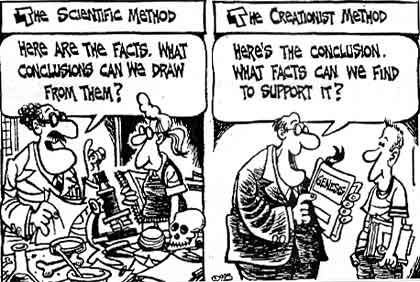

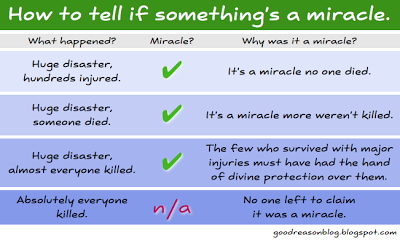

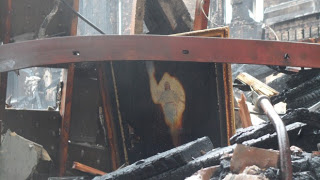


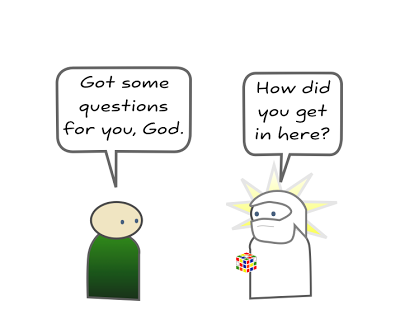

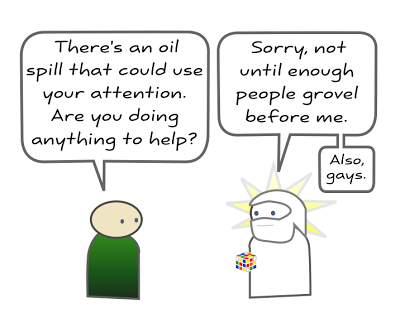
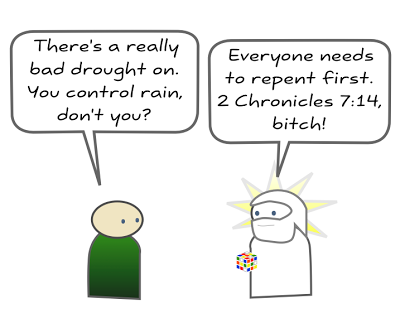
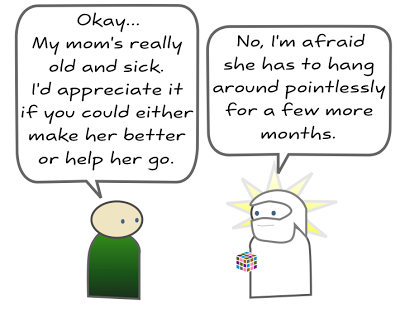
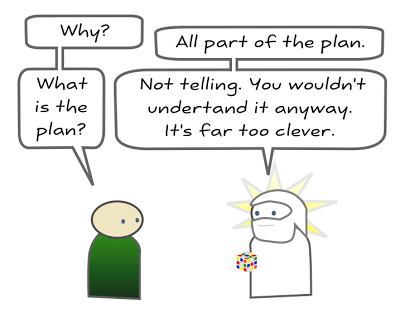
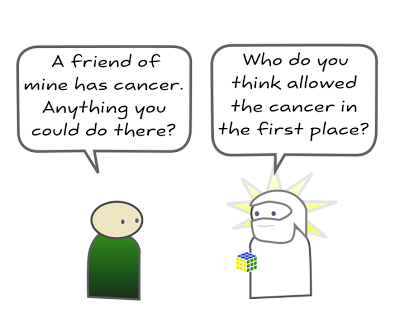
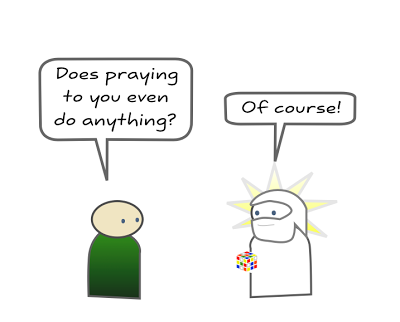
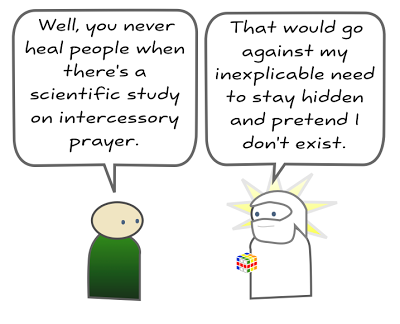
Recent Comments